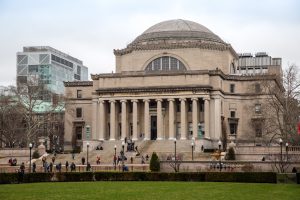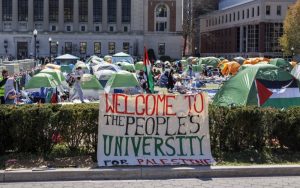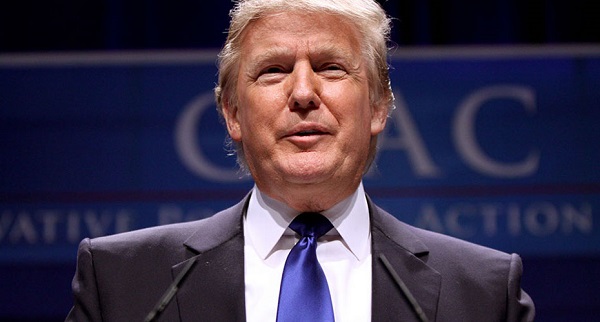
As of March 3, 2025,, Columbia University has been in the spotlight after the Trump administration decided to cut $400 million in federal funding. The administration claimed the university wasn’t doing enough to stop antisemitic incidents tied with pro-Palestinian protests on campus. As a result, Columbia was forced to make changes, such as disciplining protestors more strictly and even putting one of its departments under new leadership. Due to these deemed antisemitic acts the federal government has decided to cut an immense amount of money going to accused schools.
“Universities must comply with all federal antidiscrimination laws if they are going to receive federal funding. For too long, Columbia has abandoned that obligation to Jewish students studying on its campus,” Education Secretary Linda McMahon said in a statement. This has scared colleges and high-level universities to freezing their hiring rate.
President Trump later wrote on his social media platform that “All Federal Funding will STOP for any College, School, or University that allows illegal protests.” This is in hopes of creating what can be a safer environment for any student looking for education. There has been backlash from protesting students arguing that it violates their freedom of speech. However, it is not a public space but rather an institution which allows for rules to be established going against public disobedience if the school or government sees it fit.
Many students and professors were upset by these decisions. Some faculty even sued the Trump administration, saying that the funding cuts and policy changes were unfair and violated the school’s academic freedom. Students also held protests, arguing that the government was interfering too much in what happens on campus.
Columbia isn’t the only school facing pressure. More than 60 universities are being investigated for antisemitism, and the Trump administration is threatening to take away funding from schools that don’t meet their standards. Some believe this is an attack on free speech, while others think the government is right to step in.
The debate over what happened at Columbia University is far from over. People continue to argue about whether the government should have this much control over universities and what it means for free speech and student activism in the future.

One can argue that since the universities receive an immense amount of the U.S. federal money, they should be responsible for keeping their campuses safe and free from discrimination.
The government claims that Columbia failed to stop antisemitic harassment linked to pro-Palestinian protests. If a school isn’t protecting all of its students, should taxpayers be funding it? Cutting the money forces Columbia to take the issue at hand way more seriously.
Colleges should focus on education, not necessarily political activism. While free speech is important, some protests have turned into harassment or violence against other paying students which goes farther than a “non-violent” protest. If Columbia allows this to happen without consequences, it’s fair for the government to step in. The funding cut sends a message that universities can’t ignore these problems.
Lastly, federal money comes with conditions. If a university doesn’t follow the rules or fails to meet certain standards, the government absolutely has the right to pull funding. Columbia is a private institution so it can still operate without federal money, although it may be different, they should be well off. The school just has to decide whether it values free government money more than its current policies.
Overall, defunding Columbia may seem extreme, but it forces accountability. Schools that want taxpayer support should ensure a safe environment for all students and avoid letting politics overshadow education.





































